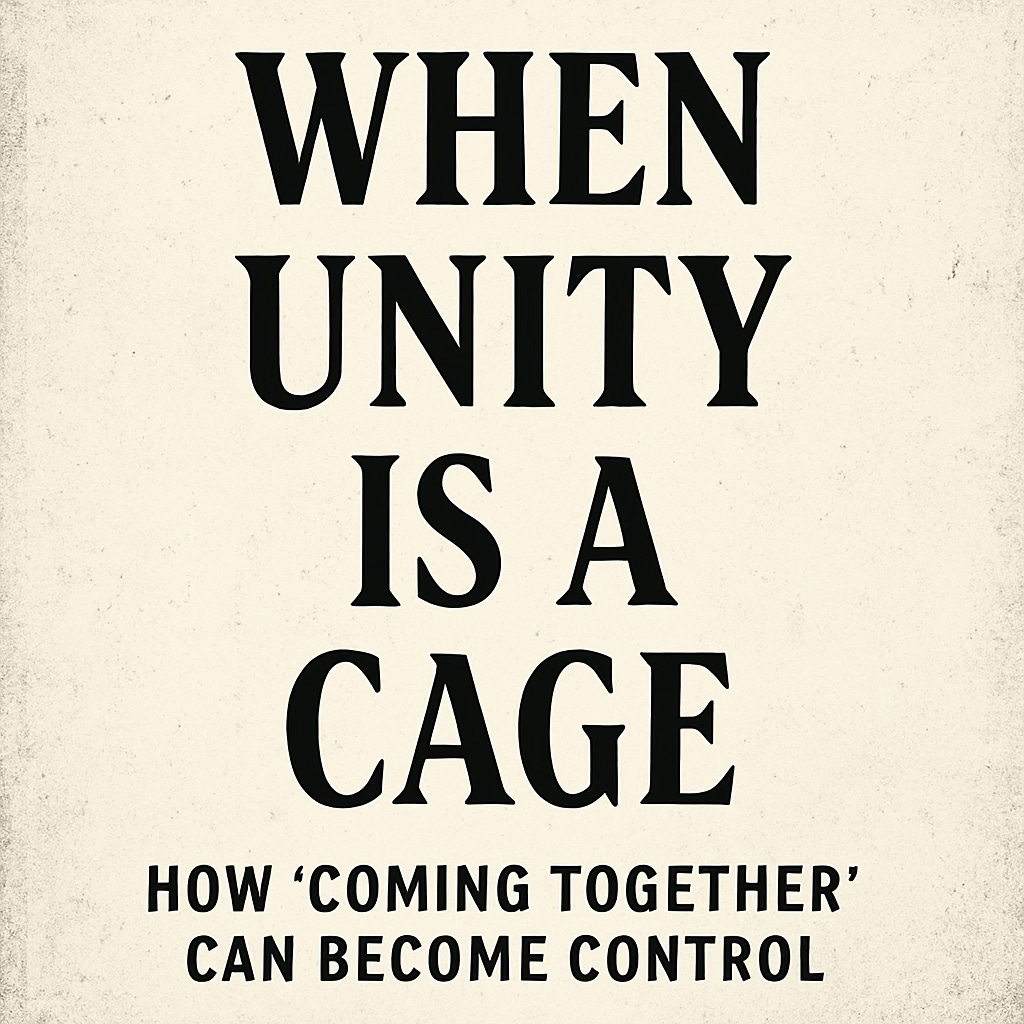How “Coming Together” Can Become Control
The Weaponized Call for Unity
You’ve heard it before:
“Let’s stop the division.”
“We need to come together.”
“Unity is what we need most.”
But here’s the thing:
Too often, those words aren’t an invitation.
They’re a muzzle.
Because when people in power say “unity,”
they usually mean:
“Stop telling the truth that makes us uncomfortable.”
It’s not about peace.
It’s about protecting a narrative.
It’s not about healing.
It’s about halting momentum for change.
It’s unity only if you stay quiet.
But silence is not the same as unity.
It’s what comes before the next injustice.
Unity Without Justice Is Just Silence
The pressure to “unify” after a tragedy, a protest, or a political scandal
often lands hardest on the people who were harmed.
They’re told to be gracious.
To move on.
To let things go.
Meanwhile, those who caused harm rarely change a thing.
Real unity doesn’t skip over pain.
It makes room for it.
It lets it speak.
If there’s no justice, there’s no unity.
There’s just obedience.
And when obedience is the price of belonging,
you’re not being asked to unite.
You’re being asked to disappear.
Who Gets to Define Unity?
The people calling for unity are usually the ones least affected by injustice.
They want calm—not because healing has happened,
but because the noise makes them uncomfortable.
They mistake discomfort for danger.
And they mistake order for peace.
So they ask for unity on their terms.
Which means:
“Let’s be united—as long as you don’t bring up race.”
“Let’s move on—as long as you don’t name the harm.”
“Let’s heal—as long as it looks like forgetting.”
But that’s not unity. That’s control.
Unity must begin with listening,
not silencing.
With equity, not erasure.
Real unity isn’t declared by the most powerful person in the room.
It’s negotiated with the people who’ve been pushed out of it.
Real Unity Begins with Truth
Unity is not the absence of conflict.
It is the presence of truth.
If we cannot speak of harm, we cannot repair it.
If we cannot name injustice, we cannot end it.
Truth is uncomfortable—because it forces us to grow.
It invites accountability.
It makes power tremble.
But it is also the only soil where peace can take root.
When unity is built on truth:
We don’t confuse politeness with progress.
We don’t silence pain to protect power.
We don’t choose calm over conscience.
We choose love—but not the performative kind.
The kind that disrupts, that listens, that repairs.
Because that’s the kind of unity worth fighting for.




